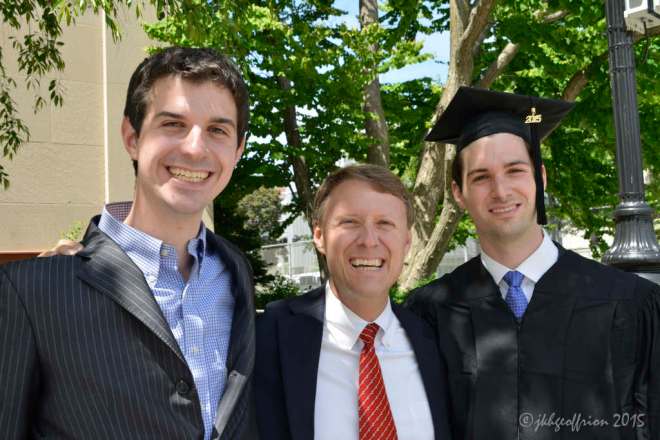What are your top priorities for your growth and development as a Christian? If you are a parent, what are you emphasizing to your children to guide them into adulthood? If you are a youth group leader or mentor, what spiritual guidance are you offering to ground and direct those under your care. If you were on the Board of Trustees for a Christian college or seminary, apart from emphasizing education and developing skills, what would you most want the students to learn and to gain from their education at your school? In other words, how should we be preparing ourselves and the next generation of Christian leaders to make significant contributions in our troubled and needy world? Are our priorities right?
Recently, I was given the opportunity to answer these questions for the sake of the school where I teach, the Myanmar Institute of Theology (MIT), in Yangon, Myanmar (Burma). The school theme that I proposed for the academic year, “Growing in Christ, Preparing for Service,” was chosen by the MIT faculty members as particularly fitting for our 1200+ students. What follows below is the Bible study that I prepared to present this theme to the student body and all of our constituents. While the context is clearly a particular Christian college and seminary in Southeast Asia, this teaching applies to Christians everywhere. The writers of the New Testament insist over and over again that we need to keep our spiritual priorities straight—in our personal lives, families, churches, youth groups, and Christian schools. So much is at stake.
“Growing in Christ, Preparing for Service”

This year’s theme, Growing in Christ, Preparing for Service, is intended to concisely articulate the core theological and spiritual foundation of Myanmar Institute of Theology (MIT) and to remind us all of why MIT primarily exists. In other words, the primary purpose of this theme is to encourage MIT Liberal Arts Program (LAP) and Theology students, faculty, and staff to focus on developing their relationship with Christ as their first priority, and to humbly dedicate themselves to serving Christ, church, and country with greater knowledge, skills, and spiritual vitality.
Drawing largely on Jesus’ teaching on the two greatest commands and on Paul’s interpretation of the Gospel, we can say that the primary purpose for every human being is to know, love, and serve God, who is revealed preeminently in Jesus Christ, our Savior and Lord.[1] For Christians, this life purpose is not simply a matter of doctrine; it cannot be fulfilled just by believing or by being baptized. Rather, it requires growing in our relationship with Jesus Christ all our lives. Our vocation—that is, our unique work in the world—flows from this relationship into a lifetime of service, no matter what our particular position, assignment, or activity may be. We may be called to serve primarily in the Church, the broader society, or simply at home with our families, but every Christian has the same general vocation to follow in the footsteps of our Lord Jesus Christ, who said of himself, “The Son of Man did not come to be served, but to serve and give his life…for many” (Mark 10:45). In short, then, our theme, Growing in Christ, Preparing for Service, draws our attention to our top spiritual priority of knowing and loving God in Christ more and more, and to MIT’s chief responsibility from a biblical point of view to prepare men and women to serve Christ and the Church in a wide variety of ways upon graduation.
Our Bible study will take Paul’s teaching on the purpose of the Church and the significance of growing in Christ as our point of departure. We will then look how Peter contextualized Paul’s ecclesiology, teaching marginalized and persecuted Christians how they should live and serve Christ in a religiously pluralistic world, and what kind of preparation is needed to do so. Finally, a few comments will be offered on the relevance of this biblical teaching and theme to MIT.
The priority of growing in Christ according to Paul

The Church was established by the preaching of the Gospel, the working of the Holy Spirit through its proclamation, and the common faith of those who put their trust in Jesus Christ for their salvation.[2] According to Paul’s first letter to the Corinthians, believers in the Christian Gospel become members of the body of Christ, and together form the universal Church (1 Cor. 12). Further, God gave spiritual gifts to every member of the body of Christ (12:7). In his letter to the Ephesians, Paul focuses on a subset of the body to emphasize particular gifts given to those who are in positions of leadership—namely, apostles, prophets, evangelists, pastors and teachers, in order both to identify these leadership gifts and to discuss the purpose for which they were given.[3]
In general, Paul taught that God gives spiritual gifts among the members of the body of Christ in order that they may minister to, serve, and build up one another. In 1 Corinthians, Paul simply says that the gifts are given for “the common good” (12:7), meaning the good of the body of Christ (the Church). All believers in Christ have the responsibility to serve in ways that strengthen the body. Leaders have the additional duty “to prepare God’s people for works of service so that the body of Christ may be built up” (4:11-12). To be built up means that all the members of the body of Christ would “reach unity in the faith and in the knowledge of the Son of God and become mature, attaining to the whole measure of the fullness of Christ” (4:13). When the body of Christ is mature, they “will no longer be infants,” liable to being misled and confused by false teaching (4:14). Instead of being crippled by instability and division, they would “grow up into him who is the Head, that is, Christ” (4:15, emphasis added), as the whole body “grows and builds itself up in love, as each part does its work” (4:16, emphasis added).
In Paul’s vision for the Church, everyone is expected to keep growing in Christ and to be actively serving one another for the common good and the upbuilding of the whole Church. If we have accurately summed up the priorities for the body of Christ as a whole, how much more important is growing in Christ, preparing for service for the Church’s future leaders.
The necessity of growing in Christ as preparation for service according to Peter
When we turn to the Apostle Peter’s teaching, we see how he contextualizes Paul’s teaching on growing in Christ for Christians who were marginalized by the broader, religiously pluralistic society and sometimes even persecuted for their faith.[4] In the face of such hardship and danger, he urged Christian believers to go deeper into their own relationship with God in Christ, to strengthen their self-understanding as the people of God, and to prepare themselves intellectually as well as spiritually, morally, and behaviorally, so that their witness to their largely nonChristian neighbors would be more clear, vibrant and persuasive.[5] They were not to shy away from suffering for Christ. Yet, at the same time, they should avoid unnecessary persecution (that which comes from outright rebellion or immoral behavior) and live exemplary lives for all to see. He urged them to “live such good lives among the pagans though they accuse you of doing wrong, they may see your good deeds and glorify God on the day he visits us” (1 Pet. 2:12).

To live up to our calling and to the demands of serving Christ requires ongoing spiritual growth and development. So, Peter says, “Like newborn babies, crave pure spiritual milk, so that by it you may grow up in your salvation, now that you have tasted that the Lord is good” (1 Pet. 2:2-3, NIV, emphasis added). Peter writes elsewhere, “grow in the grace and knowledge of our Lord and Savior Jesus Christ” (2 Pet. 3:18, NIV, emphasis added). He knows well that his readers already have experienced the grace of God and know the Lord Jesus Christ as Savior. Yet, he also knows that the Christian faith calls us to keep growing in our knowledge and experience of God in ever-new and more meaningful ways.
Throughout his letters, Peter gives many practical teachings on what it means to grow spiritually and prepare better for Christian service. In one place, Peter urged his readers, “In your hearts set apart Christ as Lord” (1 Pet. 3:15a, NIV). Acknowledging Jesus Christ as our Lord, or leader, is not something a believer does just once at baptism. Rather, surrendering to the lordship of Christ is ongoing struggle and process that continues throughout our lifetimes. This, too, is an important part of growing in Christ. According to New Testament writers, accepting Christ as our Savior and Lord is an essential turning point in our spiritual journey, but it is only that—a significant turning point (not, endpoint). Bending our knee to Christ as Lord repositions us to eagerly pursue a fuller and more significant relationship with Christ on an ever-deepening basis. Then, as we grow, Peter tells his readers, “always be prepared to give an answer to everyone who asks you to give the reason for the hope that you have” (1 Pet. 3:15b, NIV). Here Peter calls Christians to keep growing intellectually and to develop communication skills to talk about their faith (and not hide or minimize it) with those who don’t know Jesus Christ. And so forth.
In sum, Peter teaches Christians how they should think of themselves and respond to nonChristians in the face of marginalization, misunderstanding, ignorance, and even persecution in a religiously pluralistic context. They are to neither hide from nor belligerently fight against those who oppose or mistreat them. He didn’t advise them to change their theology or view themselves as inferior to the majority and the powerful. Instead, they should sharpen their self-understanding as “a chosen people, a royal priesthood, a holy nation, a people belonging to God, that [they] may declare the praises of him who called [them] out of darkness into his wonderful light. Once [they] were not a people, but now [they] are the people of God; once [they] had not received mercy, but now [they] have received mercy” (1 Pet. 2:9-10). Then they should learn how to better reflect their faith, hope, and love to the nonChristians surrounding them in intelligent and positive ways. In short, the best response for Christians in a hostile, religiously pluralistic setting is to keep growing in Christ and to prepare themselves to serve both within the Church and within the broader society.
Conclusion: Implications for MIT

So, how does this Bible study apply to MIT? Just this. For MIT to fulfill its duty to Myanmar Baptist Convention (MBC) and the churches it serves, we must be diligent to teach our students how to grow in Christ. We must adequately prepare them for a lifetime of service. And, since many MIT graduates will be given significant opportunities to lead in the Church and society, we must also teach them how to lead and how to help others to grow in Christ and to be humble, faithful servants of Christ.
You may be wondering, does this Bible study suggest that growing in Christ should come at the expense of academic excellence, sharing the Gospel, participating in inter-faith dialogue, or working to address societal ills and needs? No, not at all. All these endeavors and missions remain important objectives for Christians, and especially for MIT students and graduates. Yet, growing in Christ is the most important priority, and is the pre-requisite for all our intellectual, academic, mission, and societal activities. Why? Because Jesus taught that the only way we can hope to bear fruit in our lives is by maintaining a close (“abiding”) relationship with him (John 15). Paul and Peter taught the same thing, as we have briefly seen in this Bible study. They only added that our personal relationship with God in Christ needs to keep growing and deepening as well. They taught that we must become more and more like Christ and learn how to relate better to nonChristians in a religiously pluralistic world.
The implications of this Bible study for MIT, as well as for the broader Church in Myanmar, seem obvious. The Church’s current leaders (including MIT faculty and staff) would teach, preach, and model the importance of growing in Christ as the top priority for Christians and the essential pre-requisite for everything we want to do in the name of Christ. Throughout the school year, MIT would actively promote the spiritual life of students, faculty, and staff (helping each one to grow in Christ) while organizing the school’s curriculum and student activities with the ultimate purpose of a MIT education in mind, namely, to prepare future leaders to serve Christ faithfully and fruitfully in their various leadership roles. Future leaders (including MIT students) would embrace these priorities for themselves and take personal responsibility to pursue them in every way they can.
May God bless MIT and all the churches that support and are served by MIT as, together, we keep growing in Christ, preparing for service.
[1] Matt. 22:37-39; Col. 1:9-28.
[2] See, e.g., Acts 2; Rom. 1:15-16; 10:6-17; 1 Cor. 15:1-11; Gal 1:1-9; 3:1-5; 4:4-7.
[3] Eph. 4:8-11; Cf. 1 Cor. 12:1-10; Rom. 12:4-8; 1 Pet. 4:10-11.
[4] 1 Pet. 1:5; 2:4, 11; 3:14; 4:12-16.
[5] 1 Pet. 1:13-16; 2:5, 9-17, 19-21; 3:8-16.









